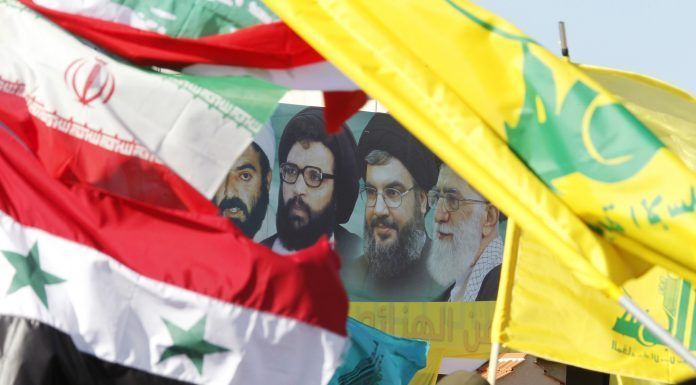By Jonathan Landay
WASHINGTON, Sept 4 (Reuters) – The United States on Wednesday sanctioned an “oil for terror” network of firms, ships and individuals allegedly directed by Iran‘s Islamic Revolutionary Guard Corps that supplied Syria with oil worth hundreds of millions of dollars in breach of U.S. sanctions.
The U.S. action intensified a “maximum pressure” campaign aimed at driving to zero Iran’s oil exports, the country’s main source of income, and almost certainly will increase tensions that erupted when President Donald Trump withdrew last year from an international accord designed to stop Tehran from producing nuclear weapons.
Iran has been gradually reducing its compliance with the 2015 agreement in a bid to pressure European countries to compensate it for the severe damage done to its economy by multiple rounds of U.S. sanctions. Tehran was expected to announce further breaches sometime this month.
The 10 individuals blacklisted on Wednesday included Rostam Qasemi, a former Iranian oil minister, and his son, the U.S. Treasury Department said in a statement.
Also hit were subsidiaries of an Indian company with an interest in the Adrian Darya, the Iranian tanker suspected of carrying oil for Syria that has been cruising the Mediterranean since its release from detention by British authorities off Gibraltar in July, it said.
The Treasury Department’s Office of Foreign Assets Control action froze any assets in the United States of the designated entities and generally prohibited U.S. citizens or companies from doing business with them.
U.S. officials said that the Qods Force, the IRGC’s elite foreign paramilitary and espionage arm, and Hezbollah, the Iranian-backed Lebanese militia movement, profited financially from the sales of Iranian oil and petroleum products, mostly to Syria, that this spring alone were worth more than $750 million.
“Treasury’s action against this sprawling petroleum network makes it explicitly clear that those purchasing Iranian oil are directly supporting Iran‘s militants and terrorist arm, the IRGC-Qods Force,” Treasury Secretary Steven Mnuchin said in the statement.
U.S. officials said that the Qods Force used the network to hide its involvement in the oil sales to Syrian President Bashar Assad’s government and other unidentified “illicit actors” and relied heavily on Hezbollah officials and front companies to broker the contracts.
The Qods Force and Hezbollah have been major backers of Damascus in the civil war that erupted in 2011 against decades of Assad family rule. The Qods Force and Hezbollah are on the U.S. list of foreign terrorist organizations.
“This vast oil-for-terror shipping network demonstrates how economically reliant Tehran is on the IRGC-QF and Hezbollah as financial lifelines,” said Sigal Mandaker, the senior Treasury official who oversees sanctions.
(Reporting by Jonathan Landay and Makini Brice; Editing by Chizu Nomiyama and Steve Orlofsky)



